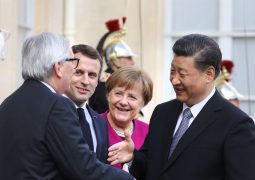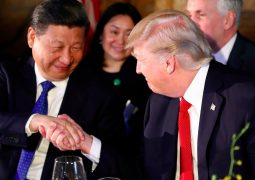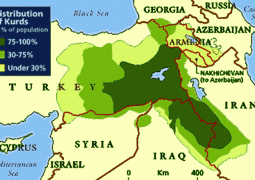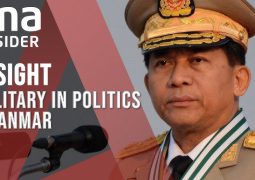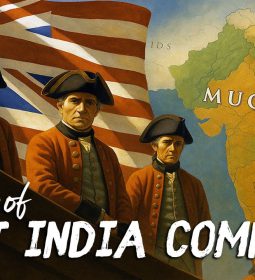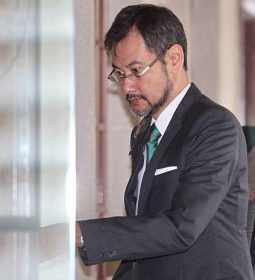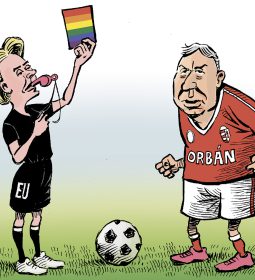As Islamic Games Open, Azerbaijan Wrestles With Muslim Identity

May 15, 2017 – 12:59pm, by Joshua Kucera Azerbaijan
With an opening ceremony rich in pageantry, Azerbaijan welcomed athletes and tourists from across the Islamic world for the Islamic Solidarity Games, an Olympic-style competition opening meant to showcase the fellowship of the world’s Muslims. (Photo: Azerbaijani Presidential Press Service)
With an opening ceremony rich in pageantry, Azerbaijan welcomed athletes and tourists from across the Islamic world for the Islamic Solidarity Games, an Olympic-style competition opening meant to showcase the fellowship of the world’s Muslims. (Photo: Azerbaijani Presidential Press Service)
With an opening ceremony rich in pageantry, Azerbaijan welcomed athletes and tourists from across the Islamic world for the Islamic Solidarity Games, an Olympic-style competition opening meant to showcase the fellowship of the world’s Muslims.
“Tonight we bring the Islamic world together,” said Vice President and First Lady Mehriban Aliyeva at the opening ceremony on May 12. “We are an ancient nation, rooted in millennia of culture and strong Islamic traditions,” she said, speaking in English. “We are proud to be part of the Islamic history and heritage, to share Islamic values.”
It is in some ways an awkward time for the Azerbaijani government to be proclaiming Islamic solidarity, caught as it is between a rising population of pious Muslims and an elite that adheres to the 20th-century legacy of secularism.
The competition, featuring 3,000 athletes from more than 50 countries, is the latest in a string of high-profile events that Baku has hosted, starting with the Eurovision Song Contest in 2012, and including the European Games in 2015, and a Formula One car race in 2016, to be held again this year.
These flashy, albeit “second-tier” events by global standards, have been a key tool in Azerbaijan’s attempts to promote itself on an international stage. The Islamic Games mark the first such spectacle to explicitly position Azerbaijan as a Muslim nation.
Azerbaijan, though, has framed the event less as a purely Muslim affair and more as a reflection of its multicultural identity. The games form a neat bookend to a comparable event, the 2015 European Games. That juxtaposition “is very symbolic,” President Ilham Aliyev said. “One and the same country and city host[s] European and Islamic Games in a matter of two years,” he noted in extolling his country’s multicultural complexion.
Underscoring that parallel was the executive director of the opening ceremony, Catherine Ugwu, who performed the same role for Baku’s European Games. “Both [ceremonies] have taken Azerbaijan as a starting point, but whereas with the European Games we very much looked to the West, this time we very much look to the East,” Ugwu said.
The games are taking place amid an increasing crackdown on religious freedom in Azerbaijan. This has required occasionally delicate maneuvering by the government.
In its most recent report, the United States Commission on International Religious Freedom concluded that: “The status of religious freedom in Azerbaijan deteriorated in 2016.” It cited the “closing [of] Sunni mosques,” as well as events in Nardaran, a conservative Shia village just north of Baku, where dozens of religious activists have been arrested on what are widely viewed as trumped-up charges of threatening the government; many have already been sentenced to long prison terms and the trials of others are ongoing.
“While Azerbaijan is at risk from international terrorism, that danger increasingly serves as a pretext in official efforts to suppress peaceful religious dissent amidst a general crackdown on human rights,” the commission report notes.
In February, another Shia cleric, Serdar Babayev, from Masalli in southern Azerbaijan, was arrested on grounds that he was preaching while having received his religious education abroad, which is forbidden in Azerbaijan. “The country is preparing to host the Islamic Solidarity Games,” said one Shia activist, Hadjiaga Nuriyev, at an event in support of Babayev. “And it will be shameful when these guests from Muslim countries come and learn that in Azerbaijan religious figures are arrested because they performed Muslim rites in a mosque.”
The government appeared to be sensitive to these perceptions as the games approached. A Shia mosque in Baku, Haji Javad, had been subject to demolition as part of an urban renewal project. On April 12, as demolition equipment arrived to tear down the mosque, protesters surrounded the mosque and blocked the machinery. Unusually, the government backed down, and the next day Aliyev personally announced a commission to study the mosque demolition issue.
“Aliyev is really scared of possible resistance of Shias. That is why he immediately reacted as if he was not aware” of the issue, said Altay Goyushev, a historian and prominent public intellectual in Azerbaijan, in an interview with EurasiaNet.org. “They do not want to have this problem – I mean noisy discussions about a mosque’s destruction, just before the Games.”
The government may be particularly concerned about the reaction of its large Shia neighbor, Iran. Internationally, when it comes to interacting with predominantly Muslim nations, Azerbaijan seems most interested in engaging predominately Sunni states – the Gulf States for investment, and Turkey and Pakistan on security issues, said Eldar Mamedov, a Brussels-based analyst on regional issues. Yet, while Baku has tended to be wary of Iran, Tehran’s interests cannot be completely ignored.
“A negative Iranian reaction … could be a problem. Aliyev fears another crisis involving Shias, whom his security apparatus sees as Iranian agents,” Mamedov told EurasiaNet.org, referring to the Haji Javad controversy.
At the same time, many Azerbaijanis – especially the urban, secular elite – are unsettled by the increasing prominence of religion in the country. In 2016, the government eased visa requirements for a number of Middle Eastern countries and set up new “halal tourism” packages. Baku saw a flood of tourists as a result, with the number of Iranian tourists increasing three-fold over a year, those from Saudi Arabia, 10 times, and the United Arab Emirates, 22 times.
The appearance of so many foreign Muslims, in particular conservatively dressed women, became the talk of Baku. “Azerbaijan aspires to a reputation of multiculturalism and tolerance, yet this sudden convergence of different cultures is proving a complicated issue, challenging even those who pride themselves on their openness,” wrote novelist Nermin Kamal in an essay about the phenomenon.
Kamal called attention to a Soviet-era statue in Baku of a woman casting off her veil, and quoted poet Rasim Garaja in a social media post about the influx of Muslim tourists: “Baku is the only Muslim city in the world where there is a monument displaying a woman throwing off her chador. Everyone needs to understand the significance of this monument. To me, it is one of the key symbols of our country. We should not take it for granted,” Garaja said. “We should make pilgrimages to it and understand its historical value and importance.”
Ultimately, Baku is trying to walk a fine line in its identification as Muslim, Goyushev said: Muslim enough that it does not have to follow “Western” norms of democracy and human rights, but secular enough that it can be useful for the West in the Islamic world.
“We are a Muslim country, we are not like the rest of the Eastern European countries,” Goyushev said, paraphrasing what he saw as the government’s message. “But at the same time they want to say, ‘We are the best example of an Islamic country. We are not a threat to the West, we can be used as an example, we are friendly to the West. We are different, but we are not hostile.’ This is the combination of messages they want to send.”
- Previous Putin, South Korea’s Moon discuss political solution to North Korea crisis
- Next Trump Revealed Highly Classified Intelligence to Russia, in Break With Ally, Officials Say




